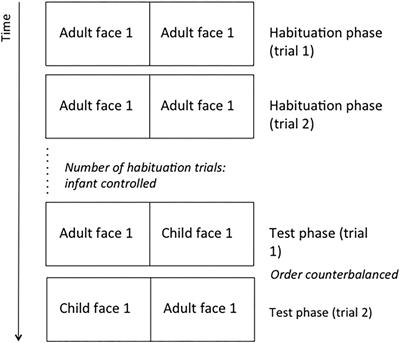Why Online Privacy Is The One Talent You Actually Need
Warning: Undefined variable $PostID in /home2/comelews/wr1te.com/wp-content/themes/adWhiteBullet/single.php on line 66
Warning: Undefined variable $PostID in /home2/comelews/wr1te.com/wp-content/themes/adWhiteBullet/single.php on line 67
|
| Articles Category RSS Feed - Subscribe to the feed here |
|
|
The Private data privacy laws manage how an individual’s private data is gathered, dealt with, used, processed and shared. The law also restricts what details is openly readily available, and it can allow withholding of certain details that could be harmful
 HIPAA is one of the most considerable pieces of data privacy legislation in the U.S. This is a far-reaching law that prevents your protected health details (PHI) from being shared by a medical institution without your authorization. The FTC likewise mandates information breach alerts, so if a medical company has actually suffered an information breach, it must immediately notify all of its clients.
HIPAA is one of the most considerable pieces of data privacy legislation in the U.S. This is a far-reaching law that prevents your protected health details (PHI) from being shared by a medical institution without your authorization. The FTC likewise mandates information breach alerts, so if a medical company has actually suffered an information breach, it must immediately notify all of its clients.
It avoids breaches of patient-doctor self-confidence and avoids a medical institution from sharing client data with collaborators (you require to sign approval for that, as well). HIPAA likewise covers any organization or specific providing medical services, including chiropractors and psychologists.
How To Purchase (A) Online Privacy And Fake ID On A Tight Price Range
The guidelines of HIPAA are exceptionally strict, and even something as innocuous as your physician informing your mommy you have a cold, or a nurse going through your case history without approval makes up a breach. If they store any recognizable information (like your date of birth), even mobile health apps and cloud storage services require to comply with HIPAA.
The Family Educational Rights and Privacy Act (FERPA) secures the information in a student’s academic record and governs how it can be released, made public, accessed or modified. It permits moms and dads of underage trainees to access the educational records of their children and request that they be changed if necessary.
Study Precisely How I Improved Online Privacy And Fake ID In 2 Days
The law also restricts what details is openly offered, and it allows trainees and moms and dads of underage trainees to withhold particular information that might be harming to the future of a trainee.
FERPA has some overlap with HIPAA and is the cause for the so-called FERPA exception. In cases where an university holds what could be considered medical information (like details on a counseling session, or on-campus medical treatments), FERPA takes precedence over HIPAA, and its guidelines are followed concerning how that information is dealt with.
The Children’s Online Privacy Protection Act (COPPA) seeks to protect kids under 13 from online predation, and enforces rigorous guidelines on how the data of these children is handled. This consists of executing proven adult approval (kids can not consent to the handling of their information), limiting marketing to children, offering a clear summary of what data gets collected, and erasing any details that is no longer necessary.
Because COPPA requirements are very stringent, most social media business just claim to not supply service to kids under 13 to avoid having to comply. Sadly, this does not avoid those kids from simply creating an account by themselves and sharing possibly dangerous individual details online, and the company can just move the blame to the parents.
Owing to the lack of adequate defense, parents should take active procedures to safeguard their children. Limiting access to social networks websites via a filtering program is the simplest way to prevent kids from accessing harmful web sites, and some ISPs provide such tools, too.
U.S. Data Privacy Laws by State … State information security laws are much more progressive compared to federal law. California and Virginia are leading the charge in data defense legislation, but other states are joining the battle versus individual data abuse, too. Website registration is an inconvenience to most people. That’s not the worst feature of it. You’re essentially increasing the danger of having your info stolen. However, sometimes it may be necessary to sign up on internet sites with pseudo identification or you may want to think about yourfakeidforroblox..!
Like the GDPR, these laws have an extraterritorial reach, because any business wanting to supply services to residents of an American state requires to adhere to its privacy laws. Here are the 4 state laws currently protecting personal details.
Do You Need A Online Privacy And Fake ID?
California probably has the best privacy laws in the United States. The California Consumer Privacy Act (CPA) was a major piece of legislation that passed in 2018, protecting the data privacy of Californians and putting rigorous data security requirements on companies.
The CCPA draws many contrasts to the European GDPR, which is high praise thinking about the excellent information security the EU manages its residents. Amongst these parallels is the right of residents to access all information a company has on them, along with the right to be forgotten– or to put it simply, have your individual data erased. However, probably the most important resemblance in between the CCPA and the GDPR is how broadly they both interpret the term “individual data.”
Under the CCPA meaning, individual data is any “information that recognizes, associates with, explains, is capable of being connected with or might fairly be connected, straight or indirectly, with a particular customer or family.”
This is a landmark definition that prevents information brokers and advertisers from collecting your individual information and profiling you, or at least makes it really challenging for them to do so. The California Privacy Rights Act (CPRA) is another Californian act that changes the CCPA to broaden its scope. Most importantly, it created the California Privacy Protection Agency, in charge of carrying out the laws and making certain they’re followed.
Virginia’s Consumer Data Protection Act (CDPA) bears many similarities to the CCPA and GDPR, and is based upon the same principles of personal information defense. Covered entities have the exact same obligations as under CCPA, consisting of offering users the right to access, view, download and delete personal details from a business’s database.
Covered entities include ones that process the data of at least 100,000 people every year, or ones that process the data of a minimum of 25,000 individuals every year however get at least 40% of their income from selling that data (like information brokers). Virginia’s CDPA differs from the CCPA in the scope of what constitutes the sale of individual info, using a narrower meaning. CCPA and GDPR specify it as the exchange of individual details, either for cash or for other factors, whereas CDPA limits those other factors to just a few specific cases.
Likewise noteworthy is the lack of a devoted regulatory authority like the one formed in California under CPRA. The present regulator is Virginia’s attorney general of the United States, which suggests the law might be harder to impose than it is in California..
Moreover, Virginia’s CDPA does not consist of a private right of action, meaning that Virginia homeowners can not sue companies for CDPA offenses.
The Colorado Privacy Act (ColoPA) follows in the steps of its predecessors and adheres to the same principles of personal information security. There’s really no notable difference in between it and California’s guidelines, although it goes a bit more in a few of its protections..
For example, CCPA permits a consumer to request access to all their personal data (utilizing the definition of personal information under CCPA), while ColoPA gives a consumer access to details of any kind that a company has on them.
It also includes a delicate information requirement to permission demands. This means that an information processor must ask for unique approval to procedure data that might categorize an individual into a secured classification (such as race, gender, faith and medical diagnoses). At the time of writing, ColoPA is imposed by Colorado’s chief law officer.
The Utah Consumer Privacy Act (UCPA) is the current state information security law to be passed in the U.S. Like all the previous laws, it utilizes the example set by the GDPR, so we’ll only mention what sets it apart.
One significant point of distinction is that its definition of personal information only applies to consumer data. This leaves out information that a company has about its employees, or that a service receives from another organization.
There is likewise no requirement for information protection evaluations. Colorado’s law demands a repeating security audit for all information processors to ensure they’re executing sensible data security procedures, however Utah imposes no such requirement. There’s likewise a $35 million annual revenue threshold for data processors– entities earning less than that do not need to comply.
The best way to keep your online activity personal is to use a VPN whenever you’re online A VPN will encrypt your traffic, making it impossible for anyone to know what online sites you’re visiting. You can have a look at our list of the very best VPNs to find one that matches your requirements.
Not even a VPN can prevent a website or blog from gathering info about you if you’ve offered it any individual details. Using a VPN can’t stop Facebook from seeing what you’ve liked on its web site and linking that to your e-mail. This information could then get handed down to data brokers and marketers.
Sadly, you can’t know for sure which data brokers have your data. Plus, the only thing you can do to get your information eliminated from a data broker’s archive is to ask to do so and hope they follow up.
Fortunately, Surfshark Incogni– the very best data privacy management tool– is a solution to this circumstance. The service that acts upon your behalf, getting in touch with information brokers to get them to erase your data.
It does the tiresome task of going through each broker in its database and following up numerous times to pressure them into actually deleting your details. You can read our evaluation of Incogni if you wish to know more.
Data privacy laws are key for keeping your information safe. Federal information privacy laws in the U.S. are lacking in contrast to the information security efforts of the European Union, but individual states are increasingly stepping up to satisfy the privacy requirements of their residents.
Find more articles written by
/home2/comelews/wr1te.com/wp-content/themes/adWhiteBullet/single.php on line 180